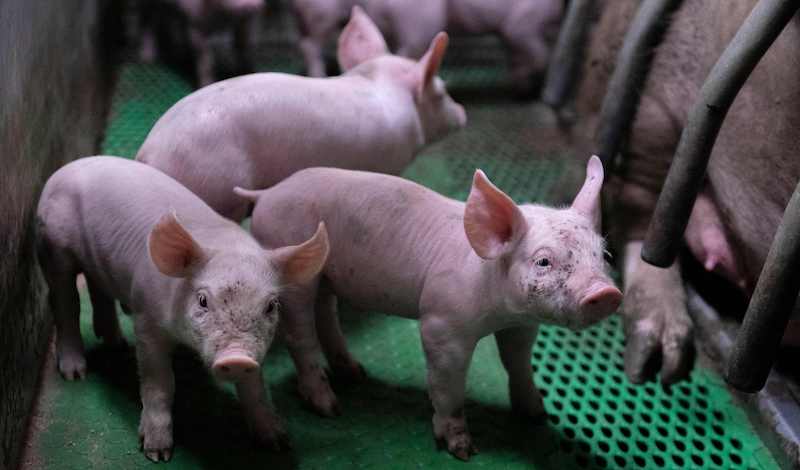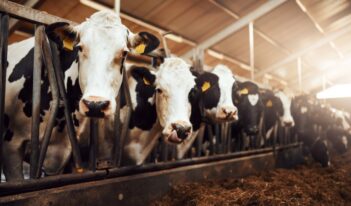
In National Pork Council v. Ross, the Court questions whether states can ban products for moral reasons.
Last month, the U.S. Supreme Court heard oral arguments in National Pork Producers Council v. Ross, a Ninth Circuit case out of California dismissing a challenge to Proposition 12, which bans the sale of whole pork from the offspring of breeding sows confined in a manner that California voters consider “cruel.”
National Pork might appear to be just another dormant Commerce Clause case, but it has the potential to change the nature of regulation throughout the United States. That is because Proposition 12 does not ban pork that has arguably harmful health effects on Californians, but rather it bans pork produced in a manner that California voters consider immoral.
The combination of those two elements—(1) a ban based not on a characteristic of the product, but rather on an aspect of the production process, and (2) relying on moral disapproval, rather than more traditional and tangible concerns, such as promoting the health and safety of residents or protecting the local environment—makes National Pork a potentially far-reaching case.
In December 2019, the National Pork Producers Council and the American Farm Bureau Federation filed suit in federal court alleging that Proposition 12 violates the dormant Commerce Clause because it impermissibly regulates extraterritorial conduct and imposes an undue burden on interstate commerce. Before trial, the district court granted California’s motion to dismiss on the grounds that the Pork Council failed to state a claim, the Ninth Circuit affirmed, and the Supreme Court granted cert.
Although both lower court opinions and most of the amicus briefs at the Supreme Court focused on the claim that California’s law was extraterritorial, the undue burden claim in National Pork was equally interesting, novel, and potentially far-reaching. The undue burden claim alleges that Proposition 12 violates the dormant Commerce Clause because it imposes a burden on interstate commerce that is excessive in relation to its legitimate local state benefits.
Although the Supreme Court’s undue-burden doctrine formally calls for balancing the burden that the challenged regulation imposes on interstate commerce against the state’s legitimate local interest in the regulation, the tendency in dormant Commerce Clause cases has been for courts to be deferential towards the enacting state.
So far, this deference has been appropriate because, for whatever reason, the states seem to have exercised restraint, largely avoiding regulations with significant out-of-state impacts. Very few dormant Commerce Clause cases involving product standards have ever reached the Supreme Court, and no such cases involved embargoes based on production processes or relied on moral justifications for embargoes. It seems there are not many state laws that, like Proposition 12, ban products for ethical reasons, although the lawyer for the intervenor, the Humane Society of the United States, offered some examples, including laws about cosmetics tested on animals, eggs from caged hens, and aborted fetal tissues.
Thus, the Supreme Court has now ventured into a potentially large and constitutionally unchartered space. States might constitutionally enact more process-based bans on goods and services for moral reasons if Proposition 12 is upheld.
The oral arguments before the Supreme Court last month only confirmed National Pork’s high stakes. Although oral argument was scheduled for 70 minutes, it lasted over two hours. The justices seemed to be looking for a way to draw a clean line distinguishing meritorious from non-meritorious claims—ideally without resorting to unguided balancing. They did not get much.
The Court pressed Pork Council’s attorney and the lawyer from the Solicitor General’s office, which supported the Pork Council, on several issues. If the Constitution did not already ban slavery, Justice Elena Kagan asked, would states be able to ban products made in other states with slave labor? If the Court were to strike down Proposition 12, justices wondered, what other laws would also fall? The Pork Council attorney’s answer—that many laws might have to be struck down—left the justices concerned. Later, the Solicitor General’s office assured them that not many existing laws would fall, but he did not have a clear line or doctrine to offer.
The justices barraged the attorneys for California and for the Humane Society, which intervened on California’s behalf, with examples of potential future morality embargoes that states could enact if the Court upheld the pork regulation. Likewise, the counsel for National Pork and the Solicitor General’s office adduced examples of regulations with out-of-state impacts that could be inspired by Proposition 12.
For example, if Proposition 12 were upheld, would it mean that states could ban products from other states whose law differed from that of the importing state on labor practices, minimum wage, waste disposal, immigration, product prices, or irrigation practices? Could California also ban pork from companies, Justice Amy Coney Barrett asked, that do not require all employees to be vaccinated, fund gender-affirming surgery, or provide certain forms of health care?
And when Justice Samuel Alito asked whether turnabout is fair play, such that other states could, for example, prohibit the sale of California almonds because their voters disapprove of California irrigation practices, California’s lawyer agreed that upholding Proposition 12 implied that other states could ban California almonds for such reasons.
California’s lawyer repeatedly attempted to distinguish Proposition 12 on the grounds that the connection between the ban and the product was direct and close—“the particular breeding sows that are literally the mechanism for creating that pork”—whereas with the hypothetical laws the connection is “wholly unrelated.” The justices seemed unconvinced, prompting a skeptical Justice Brett Kavanaugh to observe that “‘wholly unrelated’ is doing a ton of your work in your answers,” and prompting Justice Alito to ask California’s lawyer to clarify what he meant when he said that morality bans on imports could not be upheld if the connection between the moral interest and the product was too “attenuated.”
Thus, the lawyers for neither side gave the justices what they sought—a reliable way to distinguish constitutional from unconstitutional process-based embargoes that are based on ethical concerns.
The justices also expressed their concern that if states can embargo products because they consider certain processes to be immoral, then every politically charged issue can be a basis for an embargo. For example, Justice Clarence Thomas asked California’s lawyer whether his state could ban products from other states that have “different political views on certain issues that are important to your voters.”
And the justices expressed concern for disguised protectionism, or tit-for-tat retaliation, that could exaggerate existing political differences and animosities. Justice Kagan asked rhetorically whether Americans want to live in a world where states are constantly in conflict with each other.
Not only did the justices express concern with turning moral disagreements into economic fights, they wondered whether those fights would be fair. They noted that allowing Proposition 12 and similar laws to stand would seem likely to give more power to the largest states that have the largest markets, and they wondered how that would fit into the U.S. federalist system. For example, adverting to one state’s small market, Justice Kagan observed that “somebody could easily just cut off the Wyoming market.” And Justice Alito asked California’s lawyer if the state was unconcerned about possible retaliation because small states cannot effectively retaliate, enabling California to “bully the other states.”
Justice Ketanji Brown Jackson seemed to be looking to dispose the case on narrow grounds. She asked whether Proposition 12 could be struck because labeling could achieve the state’s ends with a lesser effect on interstate commerce. The Pork Council’s attorney and the Solicitor General both agreed, noting that long-standing doctrine requires a law to be narrowly tailored. The Humane Society countered that labeling was inadequate given California’s interest in banning what it views as immoral products from its market. In effect, he argued that the state’s goal was precisely what it enacted, so there was no less obstructive alternative that could achieve it.
In addition, recognizing that a health and safety justification might stand a better chance of being upheld, the Humane Society’s attorney emphasized that voters might have reasonably believed that there could be a health and safety benefit from allowing only gestation-crate-free pork to be sold even if California was unwilling to defend those benefits. If accepted, the Humane Society’s argument would effectively allow bans based on moral objections even if the Court explicitly declared that moral objections do not count.
As Justice Kavanaugh noted, the simplest and narrowest way for the Court to resolve National Pork would be to reverse and remand on the grounds that the trial court erred when it concluded that Proposition 12 imposed no burden on interstate commerce without a trial. That is the approach we urged in an amicus brief. Such a resolution would also be consistent with a long line of Court precedent.
This outcome, however, would only kick the can down the road. At some point, the Court will have to deal with the question of whether—and in what circumstances—moral objections can justify an embargo under the dormant Commerce Clause.





